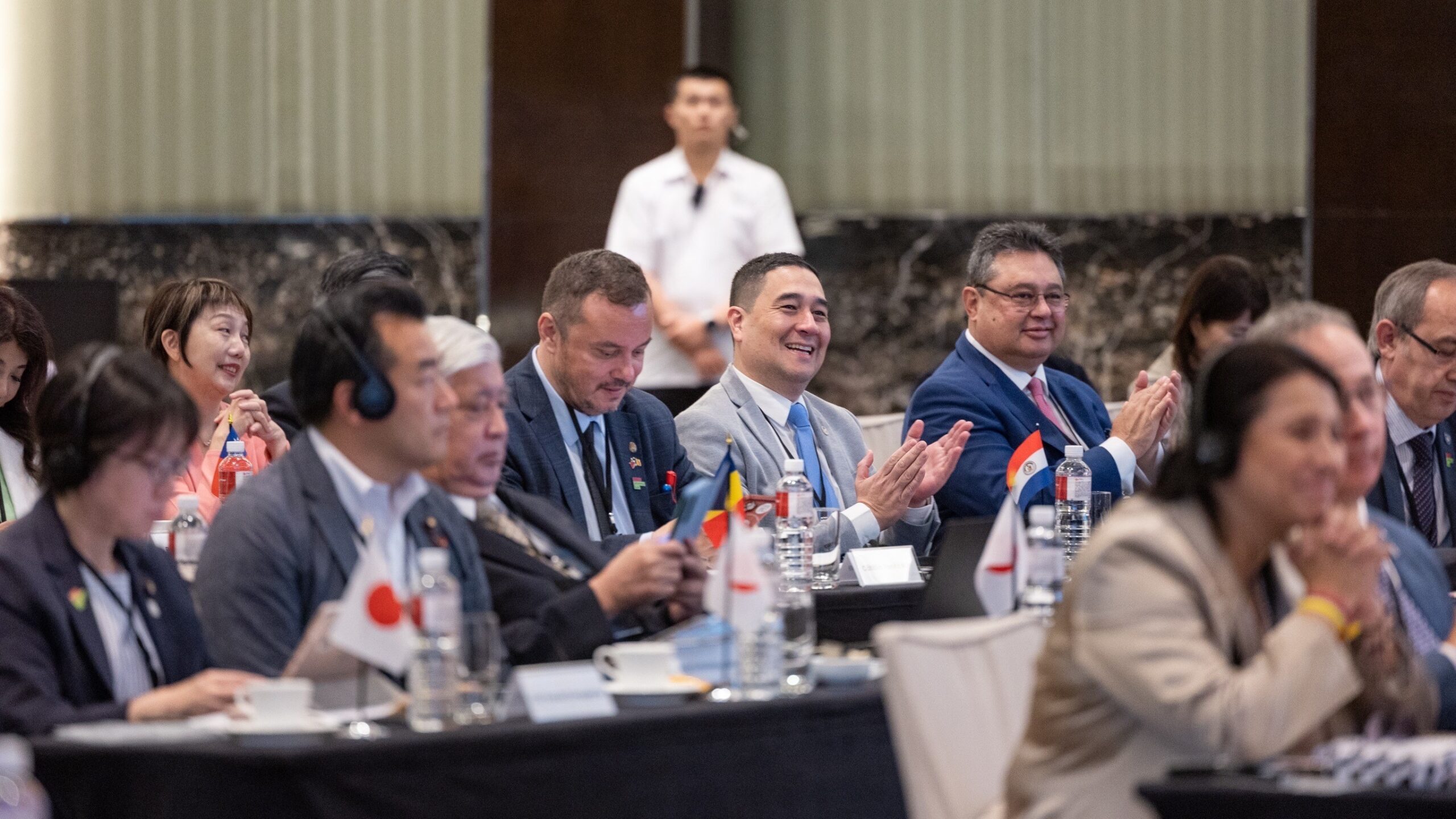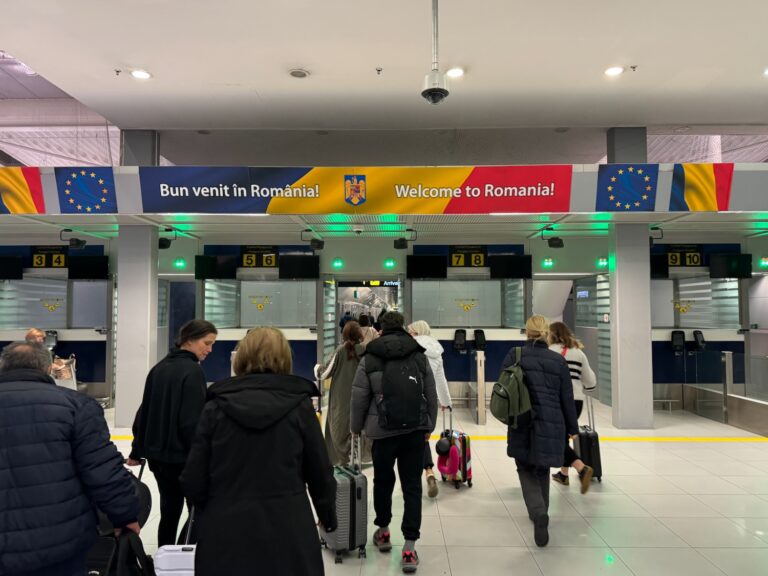
At the end of July, members of parliament from countries around the world, all part of the Inter-Parliamentary Alliance on China (IPAC), convened in Taiwan for the organization’s fourth annual summit. Given the sensitivity of both Taiwan and IPAC to the Chinese government, Beijing reacted strongly. Several IPAC members were contacted on behalf of Beijing in an attempt to dissuade them from attending the summit.
Romanian Member of Parliament (MP) Cătălin Teniță participated in the summit, prompting a notable Chinese reaction. Rather than trying to keep him away, the Chinese Embassy in Romania sent a letter to the headquarters of his political party, REPER, demanding “concrete measures to control the behavior of certain members” in relation to Taiwan. The letter, sent in hard copy, was addressed to the co-presidents of the party. It generated internal discussions, as party members were surprised by China’s audacity and choice of words, particularly the phrase demanding control, which struck a sensitive chord.
Previously, similar coercion attempts against elected officials who sought to engage with Taiwan have been observed in other European countries, such as the Czech Republic. Similar to the Czech case, the letter led to results the embassy likely did not intend. It drew significant public attention as media outlets covered both the Chinese demand and the party’s response. Consequently, for the first time in many years, the Romania-Taiwan relations became a subject of Romanian press interest.
Strategic Ambiguity or Missed Opportunities?
The relationship between Romania and Taiwan offers an interesting case study within the broader geopolitical context involving China, the European Union, and its member states. While Romania, like most EU countries, officially adheres to the One China policy, its treatment of Taiwan appears more restrictive than other European nations, including Hungary and Serbia, known for their close ties with China.
For instance, Hungary hosts a Taipei Representative Office in Budapest, established in the early 1990s, which de facto (not de iure) acts as an embassy of Taiwan. Romania only hosts a TAITRA (Taiwan External Trade Development Council) Economic Office. TAITRA is a non-profit organization which assists Taiwanese businesses in expanding their international reach and promotes trade between Taiwan and other countries.
When questioned about economic cooperation between Romania and Taiwan, the Ministry of Foreign Affairs responded that Romania does not maintain any official or inter-institutional relations with Taiwan, providing no additional data. Independent research has shown that investments from Taiwan in Romania are very small, with Taiwan not ranking among the top 50 investors. So far, Romania has shown no interest in altering this situation.
Moreover, Romania stands out as potentially the only European country where Taiwanese citizens face excessive hurdles when entering, even with valid visas. Upon arrival, Taiwanese travelers allegedly experience prolonged detentions at airports, sometimes exceeding 12 hours, and are issued a stamped sheet of paper instead of the conventional visa stamp in their passports, further complicating their travel experience.
Indeed, Romania, knowing the sensitivity of the Taiwan issue for China, has navigated this issue carefully in the past. It has avoided, as much as possible, provoking Beijing, while prioritizing its commitment and its political alignment with the EU, the US and NATO.
The ambiguity could be seen in the change of reactions by the Romanian Ministry of Foreign Affairs to Taiwan-related matters. In 2013, when four Romanian MPs visited Taiwan, China’s discontent prompted the Romanian Foreign Ministry to publicly state that “it disapproves of the travels of Romanian state representatives, including members of parliament, which give the appearance of official missions to places like Taiwan, which have not been recognized by the Romanian state.” This statement was made during the period of strong bilateral relations between Romania and China.
Today’s situation is different. Romania’s relations with China have stagnated since 2019, when the last high-level interactions between Bucharest and Beijing took place. Since then, even though China emerged from its zero-COVID policy, there has been no diplomatic engagement with Romania for unclear reasons. Even visits by Romanian officials to Taiwan, although very rare, did not elicit public reactions from the Ministry of Foreign Affairs.
Curiously, it also did not prompt any Chinese reaction. Even when the same MP, Cătălin Teniță visited Taipei last year and met with former President Tsai Ing-wen, there was no reaction from the Chinese Embassy.
What has changed so much that the Chinese Embassy felt the urge to send a letter to the political party REPER? The visibility and political significance of the IPAC summit held in Taiwan in July 2024 had to play a role. It was the first instance of Beijing waking up to Romania’s flirtation with Taiwan.
Meanwhile, the lack of interest from China contributed to a nascent interest in Taiwan in Romania. Since 2022, three Romanian MPs have joined IPAC, establishing Romania’s IPAC branch. While discussions about Taiwan have become more frequent, they still lag behind those in other European countries.
A Call for Pragmatic Engagement
In its public response to the Chinese Embassy’s letter, the Romanian political party REPER emphasized that it does not impose control over its members as long as their actions adhere to the law and the party’s rules and ethics. The party leaders also reiterated their alignment with the EU’s stance, which recognizes the One China policy, while treating Taiwan as a trustworthy partner that shares common values such as democracy, the rule of law, and human rights.
In his public reply to the letter, MP Cătălin Teniță stressed that, as an elected representative, he intends to explore opportunities for long-term collaboration with Taiwanese municipalities and authorities, particularly in areas such as public service delivery and sustainable urban development.
Considering that the vast majority of EU member states have stronger relations with Taiwan than Romania has, many of them also enjoying better economic ties with China, there is a potential for similar development in Romania. Currently, Romania’s approach to Taiwan seems to be an outlier within the broader European landscape. Most member states have adopted a more balanced and constructive engagement strategy. By aligning its policies more closely with the EU’s position, Romania could enhance its economic and cultural ties with Taiwan and contribute to the maintenance of peace and stability in the region, as called for in the European Parliament’s resolution on the situation in the Taiwan Strait from September 2022.
A more pragmatic and principled approach toward Taiwan by Romania is needed – one that recognizes the complexities of the geopolitical landscape while upholding shared values.
Written by
Andreea Leonte
AndreeaLeonteRoAndreea Leonte is a China researcher at the Romanian Institute for the Study of the Asia-Pacific (RISAP).

